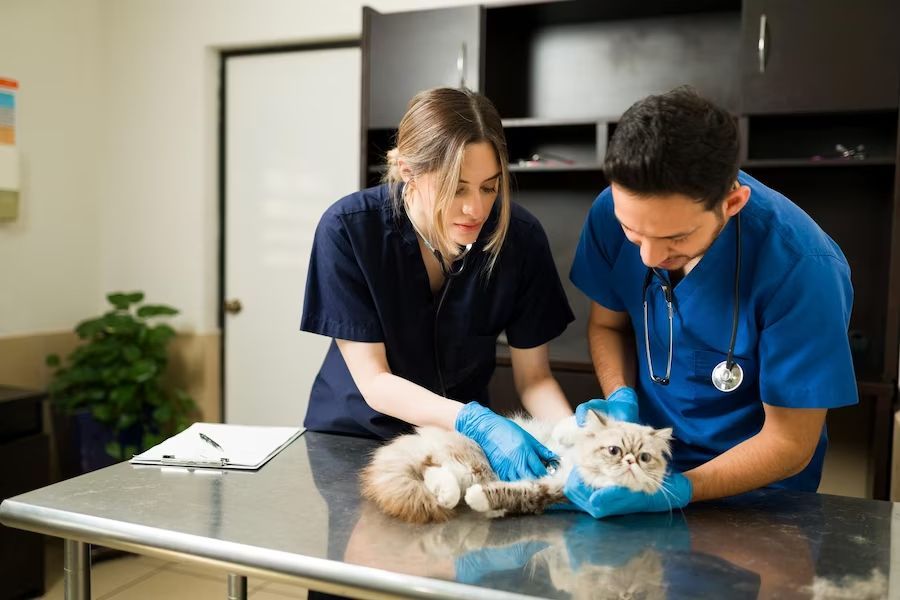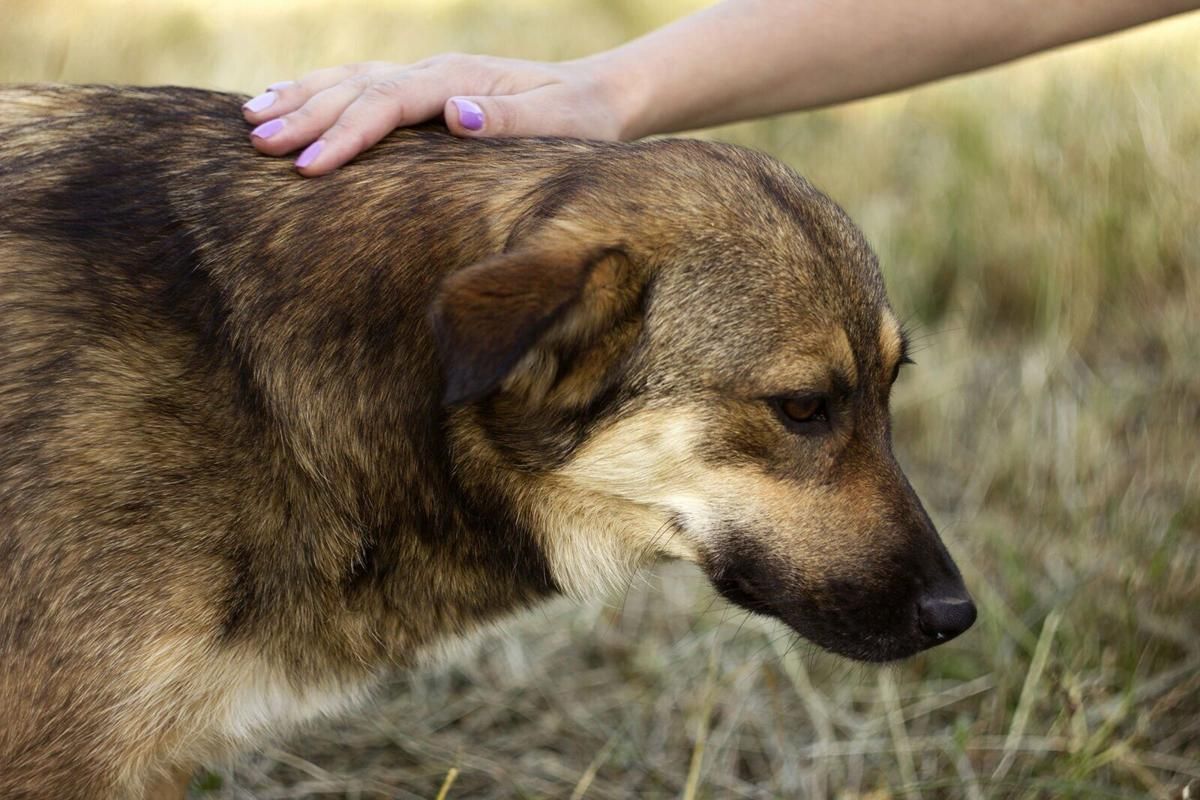7 Reasons Why Your Dog is Coughing Up Blood
Is your dog coughing up blood? This symptom can be a scary one, and with good reason—it is usually a sign of a significant problem with your dog’s health. If your pet is coughing up blood excessively, don’t wait to get him proper medical treatment. Take him to the emergency vet right away, as the causes of this condition can range from being mild to severe.
Otherwise, take a look at the list of potential causes below. With the help of this list, you may be able to determine what’s going on with your dog and whether or not you should take him to the emergency vet.
It’s always recommended that you go to the vet or emergency vet if you have any concerns about your pet’s behavior or health. It’s always better to be safe than sorry, and your vet will be able to get to the bottom of your pet’s condition and will develop the best treatment option for him.
7 common reasons for a dog coughing up blood include:
1. Injury of the Mouth
One of the less-concerning causes of a dog coughing up blood is dental injury. If your dog has a cut on his gums, loses a tooth, or accidentally bites his tongue, for example, he may spit up blood until the injury begins to heal. Usually with dental injuries, however, dogs are not actually “coughing up” the blood as much as it is drooling out of their mouth or being swallowed.
If you see your dog cough up blood for the first time, you should check his mouth thoroughly to rule out any potential dental causes of this symptom. Sometimes it can be hard to tell at home where the blood is coming from, so a thorough and possibly sedated examination by a veterinarian may be necessary if your pet is bleeding from its mouth and you are unable to identify the source of the blood.
2. Respiratory Infections in Dogs
Respiratory infections like distemper, canine influenza or Bordetella (Kennel Cough) can sometimes cause dogs to cough up blood. The blood usually comes from frequent, forceful coughing which causes inflammation of the trachea and bronchi in the lungs.
Distemper is more common in unvaccinated or young puppies, but Bordetella and canine influenza can affect any age dog that has recently been in social settings such as dog parks, boarding, or grooming.
With respiratory infections, you may also notice yellow or green mucoid nasal discharge. There may be crusting around the nares and your dog may be wheezing or hacking.
Healthy adult dogs who get sick with mild upper respiratory infections are less likely to cough up blood, but this can occur if the coughing is becoming more frequent or the infection has developed into something severe such as pneumonia.
3. Dog Heartworm Disease
Another reason for a dog coughing up blood is heartworm disease. Heartworms cause irreversible damage to the heart and the lungs. Dogs who are suffering from heartworm disease may begin coughing up blood as the disease progresses due to inflammation and damage within the lung field.
If your dog has not been on routine heart worm prevention, it is best to inform the veterinarian at the time of the visit so a heartworm test can be completed.
If your dog is already diagnosed with heartworms and he begins coughing up blood, he still needs to see the vet. This means the heartworm disease may have progressed to a more serious stage, which may or may not be manageable at home. It is best to have a chest x-ray taken to determine how far along the disease process is and what the next best steps are to help your pet.
4. Swallowing a Foreign Object
If your dog happens to swallow a foreign object, such as a piece of a toy, plastic , or an item he finds in your home, this could cause him to start coughing up blood. If the foreign object remains stuck in his esophagus, he could have issues breathing due to the pressure on the trachea, or it could cause severe lesions along the mucosa of the esophagus.
If you are concerned about your pet possibly choking on a foreign object, take him into the emergency veterinarian right away so an x-ray can be taken, and oxygen supplementation can be administered if needed. Sometimes, the foreign body can pass on its own into the stomach, but other times it must be retrieved from the esophagus via endoscopy.
5. Congestive Heart Failure in Dogs
Congestive heart failure in dogs is common in older dogs, and it is one of the most common causes of coughing up blood as well. Dogs who have congestive heart failure are prone to coughing fits, especially as the disease progresses.
As the heart failure worsens, these coughing fits may include bloody foam or sputum. If your pet is struggling to breath, has a fast respiratory rate (>30/minute) when resting, or is coughing up blood, bring him into the emergency veterinarian immediately. We can check his heart and lung field via x-ray, start treatment, and provide oxygen supplementation as necessary.
If your dog has been diagnosed with congestive heart failure, talk to your vet about providing the best possible medical care for him throughout the rest of his life. This condition cannot be treated, but you can help your dog live comfortably during the remainder of his time.
6. Ingestion of Toxin or Poison
If you know or suspect that your dog has eaten something toxic or poisonous, take him to the emergency vet right away. It is also recommended to call the Pet Poison Helpline to determine the best treatment recommendations for your pet. The veterinarians associated with the Pet Poison Helpline will work with your emergency veterinarian to develop an appropriate decontamination and treatment plan to best help your dog.
7. Coagulopathy or Clotting Disorders
If your dog’s nose starts bleeding (epistaxis) or he starts sneezing blood, he could be having issues with clotting. As the clotting or coagulation disorder worsens, this can cause your dog to start coughing up blood with continued epistaxis.
Clotting and coagulation disorders can be due to autoimmune disease, poison/toxins, tick-borne diseases, liver failure, or cancer. It is always best to bring your pet into the emergency room right away so bloodwork and imaging diagnostics can be performed to determine the cause of the epistaxis and proper treatment for your pet.
Go to the Vet if Your Dog’s Coughing Up Blood
Most of the time, coughing up blood is an indication that your dog is suffering a serious health problem and needs to see the emergency vet quickly. However, in some instances, coughing up blood signifies nothing worse than a cut on the gums. When in doubt, always take your pet to the vet for professional medical care and a proper diagnosis.
Additionally, if you know your pet has a diagnosed health problem—like heartworms or congestive heart failure—keep in mind that this diagnosis could be the cause of his coughing up blood as well.
If you have more questions or concerns about a dog coughing up blood, or if your pet’s experiencing a different emergency, bring him to a 24/7 Local Veterinarian as soon as possible. We have locations all over the country that are open 24/7, which means that you never have to wait for your pet to receive proper care and treatment. Our emergency veterinarians will get to the bottom of your pet’s condition.
Contact with your local vet for the best advise
Resource Center









